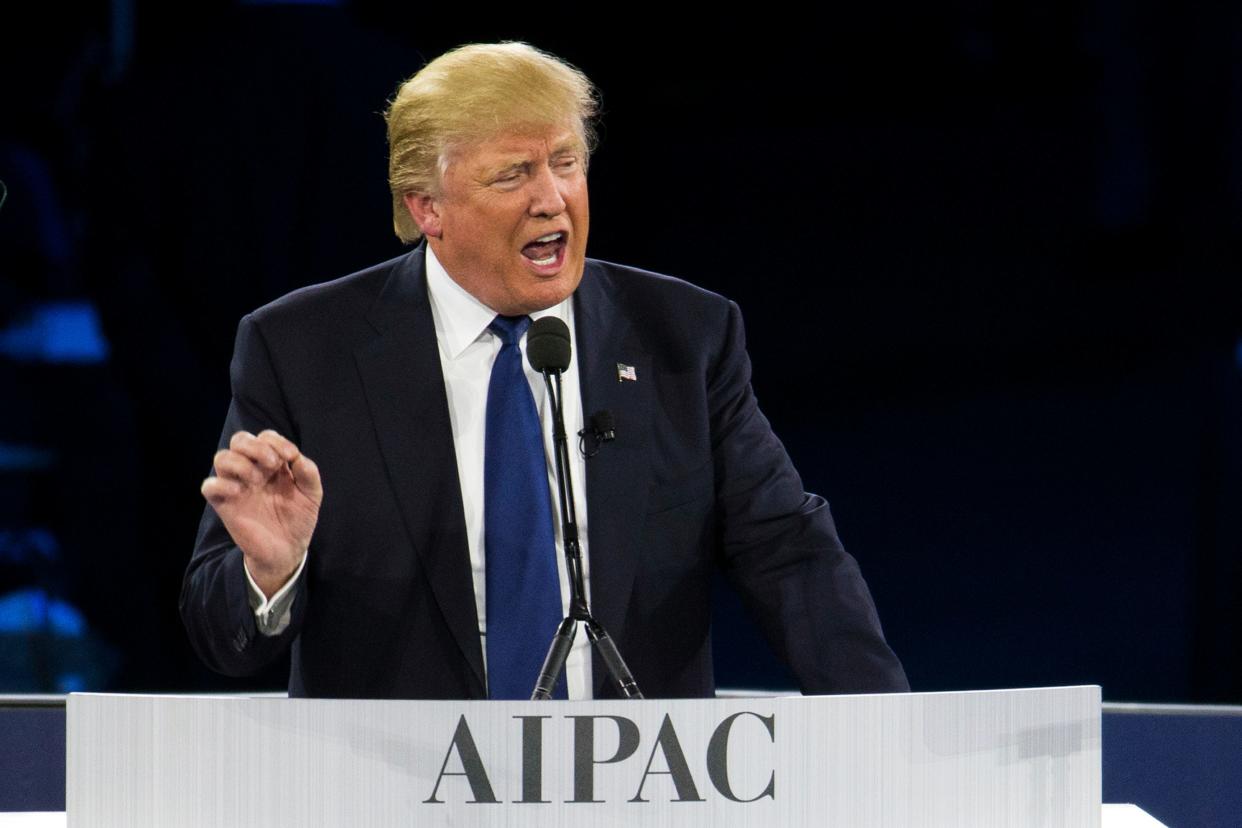Defending AIPAC's donations: They're bipartisan and focus only on support for Israel

We are responding to a recent Your Turn article entitled “Support Israel without funding far-right US pols.”
As long-time AIPAC activists and members of its National Council, we strongly disagree with the authors’ conclusions and here’s why:
When AIPAC, for the first time in its history, launched a PAC and Super PAC earlier this year, it made its political activities much more transparent but subject to criticism. Previously, AIPAC encouraged its members and supporters to participate politically, but on their own or though informal political networks.
AIPAC is a single-issue advocacy group — it promotes strengthening the US-Israel relationship primarily by lobbying Congress to support policies that will enhance this relationship. AIPAC members strongly believe that supporting Israel is in the interests of the US. That is AIPAC’s only focus.
Being a single-issue advocacy group means the group does not take positions on issues other than the US-Israel relationship. It has no position on choice, gun control, election integrity, etc. Its members, who are both Republicans and Democrats, all have positions on these and other issues but the organization does not. In this regard, AIPAC is like the vast majority of other single-issue advocacy organizations, of which there are many — it stays in its lane.
AIPAC is firmly bipartisan. What the authors don't say is that AIPAC is supporting over 140 Democratic Members or candidates for Congress, most of whom are progressives. If support for Israel ever becomes partisan — and there are signs that is occurring — then Israel is the victim. Power continually shifts in Washington and we cannot be reliant on one party or the other.
Compare this situation with the pro-choice movement. We strongly support a women’s right to choose and were dismayed by the overturning of Roe vs. Wade. But that's an almost purely partisan issue and those wishing to codify the right to choose in Congress have virtually no chance at present because they only have one party’s support. We don't face that. Last year, when Congress voted 420-9 to support replenishment of Iron Dome, it showed the power of bipartisanship.
About 140 Republicans voted against certifying the election in the House. While we are personally disgusted by those who did not support democracy, AIPAC, as an organization, simply cannot write off two-thirds of the Republican conference and lose those votes. It turns 420-9 into something much closer and even worse, makes AIPAC a partisan organization. It can't ever allow that to happen.
Moreover, the writers are factually dead wrong in saying that "AIPAC… often claims to speak for the Jewish community." AIPAC claims to speak for the pro-Israel community (as AIPAC defines what it means to be pro-Israel), which is obviously mostly Jewish but includes many non-Jews as well. There are other groups who claim to speak for the Jewish community on a range of other topics. But that has not been and will never be AIPAC’s role in the Jewish community.
In our personal political giving, we mostly do it through the AIPAC PAC portal, which allows us to give only to candidates who 1) we know are pro-Israel — and the candidates know the funds are coming from pro-Israel donors — and 2) are otherwise supportive of the other issues that are important to us. Yes, on a personal basis, we do take other things into account but we understand why, as a single-issue organization, AIPAC has to stay laser-focused.
The new AIPAC Super PAC has had remarkable success in its short life, getting involved in a number of Democratic Congressional primaries this year involving candidates who were polar opposites on issues relating to Israel. Their success has proven that being pro-Israel is not only good policy but good politics.
Finally, for Democrats who remain uncomfortable with AIPAC’s approach, there is another organization which we strongly support—Democratic Majority for Israel. DMFI supports only Democrats, as long as they are pro-Israel.
We commend the authors for supporting Israel and agree with them on reproductive rights. But those two issues are separate and apart and AIPAC will continue to focus only on the former.
Helane and Richard Goldstein are residents of Boca Raton. The opinions expressed above are theirs and not necessarily those of AIPAC.
This article originally appeared on Palm Beach Post: Rebuttal: AIPAC donations focus only on support for Israel

